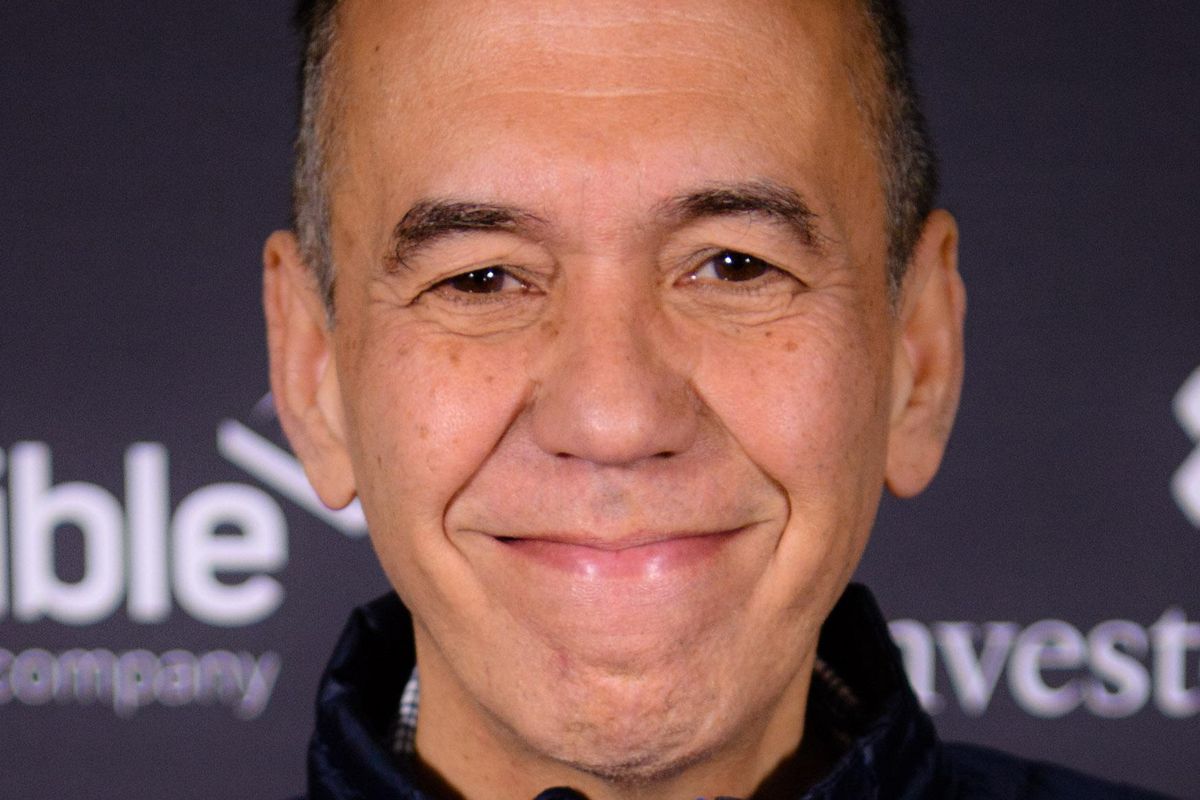How Gilbert Gottfried's iconic 'Iago' voice helped a father connect with his autistic son
The lesser known story behind our favorite cartoon bird.

Gilbert Gottfried in 2016.
The late Gilbert Gottfried was a legendary stand-up comic, who somehow managed to pull off bizarre, even crude humor with a sense of lighthearted charm. He also appeared in countless films and TV shows as an actor, including “Saturday Night Live,” “Beverly Hills Cop II” and more recently “The Marvelous Mrs. Maisel.”
But for many ’90s kids (myself included) he was quite simply the one, the only … Iago. Gottfried brought a wisecracking, chaotic Disney parrot to life in a way that no one else could. In fact, fellow “Aladdin” actor Jonathan Freeman credited Gottfried for bringing out his best rendition of the movie’s sinister villain, Jafar.
“My performance was much improved by having had Gilbert as the parrot because I didn’t have to be psychotic. I could let him be psychotic,” Freeman said in an interview for Theater Mania.
And while nearly everyone on the planet might know about Gottfried’s Iago, they might not know how his beloved character helped one father connect once again with his autistic son.
In 2014, Pulitzer Prize winning journalist Ron Suskind wrote an article for The New York Times sharing how his son Owen’s regressive autism diagnosis came as a frustrating, confusing and painful shock.
Unlike children born with it, those with regressive autism seem to be developing typically then will suddenly experience a rapid loss in communication and social skills. This meant his once “chatty, energetic” boy stopped speaking. For four years.
In the midst of the family’s upheaval, one saving grace provided comfort and stability: Disney.
Movies such as “The Little Mermaid,” “Beauty and the Beast” and even old classics like “Dumbo” and "Bambi” still held Owen’s interest. And eventually, Suskind discovered that they could also be the key to communication.
On his brother Walt’s birthday, Owen used a Disney reference to speak a complex sentence: “Walter doesn’t want to grow up, like Mowgli or Peter Pan.”
Eager to find a way to keep the momentum going, Suskind followed Owen into his room.
As he tiptoed up the stairs, Suskind saw a puppet of Iago, one of Owen’s “favorite characters.”
Owen had been doing lots of Iago echolalia, repeating certain character lines. Echolalia is commonly described as both a symptom of autism and as a point of entry for a parent.
Suskind joked that it was “easy to identify because the character is voiced by Gilbert Gottfried, who talks like a busted Cuisinart.”
Suskind successfully grabbed the Iago puppet, then froze, not knowing what to say. Suddenly, an idea came. “What would Iago say?”
Doing his best Gilbert Gottfried, Suskind started to ask Owen simple questions.
“How ya doin'?”
“How does it feel to be you?”
He must have done a convincing Gottfried impression, because it worked. Owen and “Iago” had a long, heartfelt conversation. Owen even channeled his inner Jafar. They were playing together. A miracle.
“I hear a laugh, a joyful little laugh that I have not heard in many years,” the father wrote.
That breakthrough would eventually lead to Suskind writing a book about the life-changing discovery. He even teamed up with Owen (now all grown up) to adapt the book into a documentary called “Life Animated.”
Owen now seems to be a happy, healthy adult (a picture of him next to Gottfried below) with a fulfilling life—and yes, still a love of Disney, thanks in part to a wisecracking, chaotic parrot.
Gottfried’s voice was indeed iconic. But, as with many great artists, it also helped others find their voice. His talent made a lasting positive impact, and he will be missed.
This article originally appeared on 4.13.22





 A father does his daughter's hair
A father does his daughter's hair A father plays chess with his daughter
A father plays chess with his daughter A dad hula hoops with his daughterAll illustrations are provided by Soosh and used with permission.
A dad hula hoops with his daughterAll illustrations are provided by Soosh and used with permission. A dad talks to his daughter while working at his deskAll illustrations are provided by Soosh and used with permission.
A dad talks to his daughter while working at his deskAll illustrations are provided by Soosh and used with permission. A dad performs a puppet show for his daughterAll illustrations are provided by Soosh and used with permission.
A dad performs a puppet show for his daughterAll illustrations are provided by Soosh and used with permission. A dad walks with his daughter on his backAll illustrations are provided by Soosh and used with permission.
A dad walks with his daughter on his backAll illustrations are provided by Soosh and used with permission. a dad carries a suitcase that his daughter holds onto
a dad carries a suitcase that his daughter holds onto A dad holds his sleeping daughterAll illustrations are provided by Soosh and used with permission.
A dad holds his sleeping daughterAll illustrations are provided by Soosh and used with permission. A superhero dad looks over his daughterAll illustrations are provided by Soosh and used with permission.
A superhero dad looks over his daughterAll illustrations are provided by Soosh and used with permission. A dad takes the small corner of the bed with his dauthterAll illustrations are provided by Soosh and used with permission.
A dad takes the small corner of the bed with his dauthterAll illustrations are provided by Soosh and used with permission. Side Eye Dog Meme GIF
Side Eye Dog Meme GIF Meme Reaction GIF by Tokkingheads
Meme Reaction GIF by Tokkingheads When the parents don't even know about it, that's a successful surprise party.
When the parents don't even know about it, that's a successful surprise party.